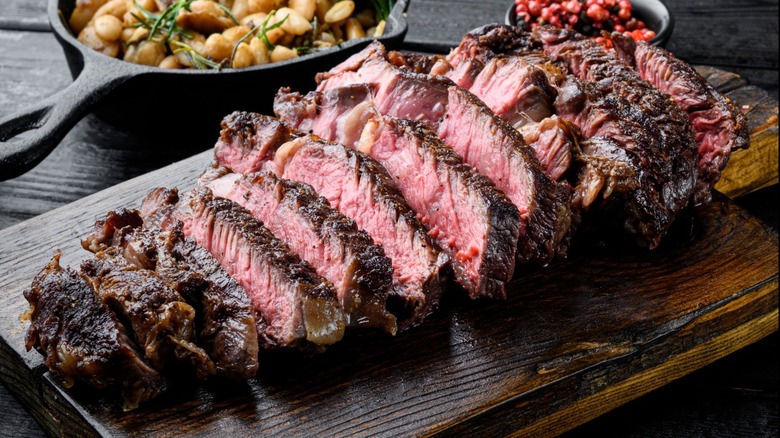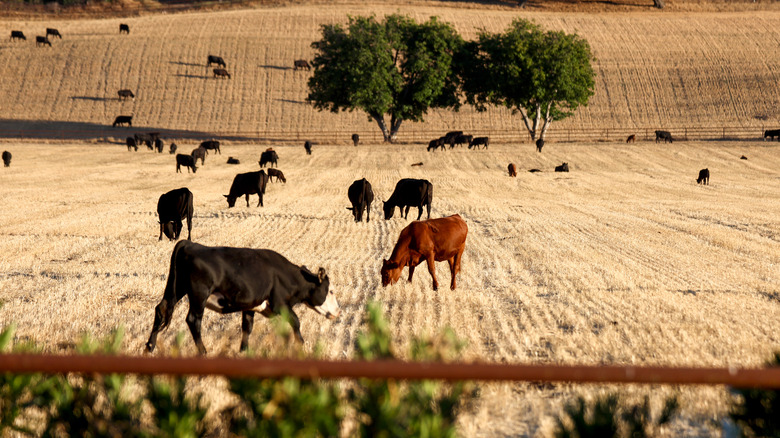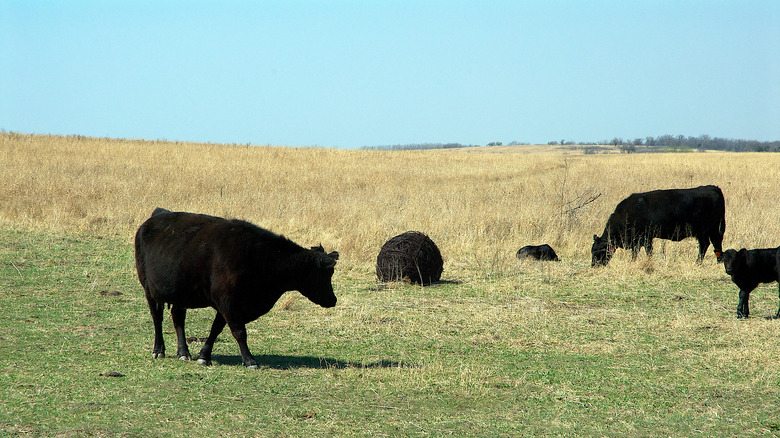The Tragic Way Climate Change Could Affect US Meat Supplies
Unless you lived in the Midwest, chances are you would have missed a warning from the National Weather Service over what it called a "record-breaking, early-season heat wave" that would wash over parts of the country between June 12 and 16 of this year. During the hottest day of the spell, some areas in Illinois broke heat records by registering temperatures of 119 F, per the National Weather Service.
That heat would have been devastating in Kansas, which normally sees between 58 to 88 F in June, per Weather U.S. But when the heatwave came, the temperatures went past that, to hit a high of 100 F, per Reuters. That's a temperature unseen even during the hottest month of July, when temperatures hit 94 F, per Weather U.S.
That early heat wave had a devastating effect on the areas it affected. At one New Mexico farm which grew chiles and onions, farmer Jaime Viramontes told Marketplace that they had to "water [the produce] for longer periods of time so that the ground temperatures can stay fairly cool."
The heat wave came with little warning
But few appeared to be prepared for the way the extreme heat would affect livestock in Kansas, where the Kansas Livestock Associations' Scarlett Hagins told AgDaily that farmers "saw a 10- to 14-degree jump in temperatures along with an increase in humidity almost overnight. There was little wind, and heat stress became an issue because it was such a sudden change. Cattle didn't have time to acclimate."
As a result, several thousand heads of cattle suddenly fell dead. While initial estimates put the losses at about 2,000 heads of cattle, per NPR, AgDaily said the final tally would have been closer to 10,000.
Kansas State University associate professor and beef extension veterinarian AJ Tarpoff tells ABC that while cattle are pretty robust and are able to adjust to different weather scenarios, in this particular instance, "Some animals just did not have time to adapt [from the spring season] and some were still shedding their winter coats." That's one likely reason the heat stress affected some cows more than others.
The June incident in Kansas is not likely to affect beef prices
In case you're worried about how this might impact the already sky-high price of beef, the Kansas Livestock Associations' Scarlett Hagins said there was nothing to worry about, as Kansas usually sells 5.5 million heads of cattle every year. "People shouldn't worry about seeing beef on the shelves or seeing the price of beef go up," she told ABC.
Still, the loss was especially tragic for producers. As Hagins pointed out, "These were market-ready animals and on average were worth about $2,000 dollars per head so economically, for these producers, it was a significant loss," per Marketplace.
This likely won't be the last time farmers will suffer the loss of livestock due to climate change. The Lancet points out that heat stress can have a devastating impact on domesticated livestock, because when animals are exposed to temperatures which are higher than the ones they are used to, the impact is felt in areas such as the amount of weight they can put on, the amount of milk they can produce, as well as on their fertility, which could be a warning that the beef market may not be as lucky the next time around.


